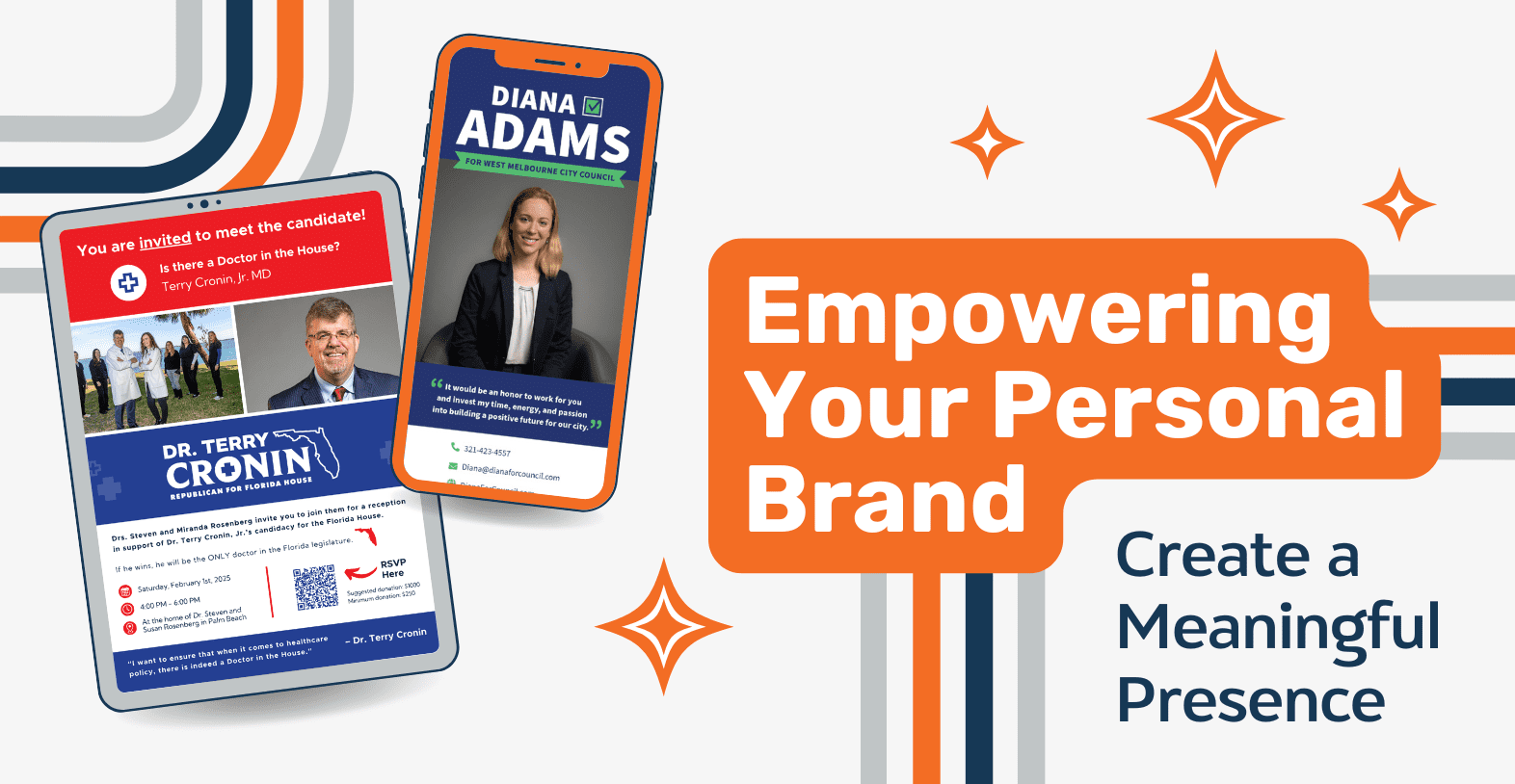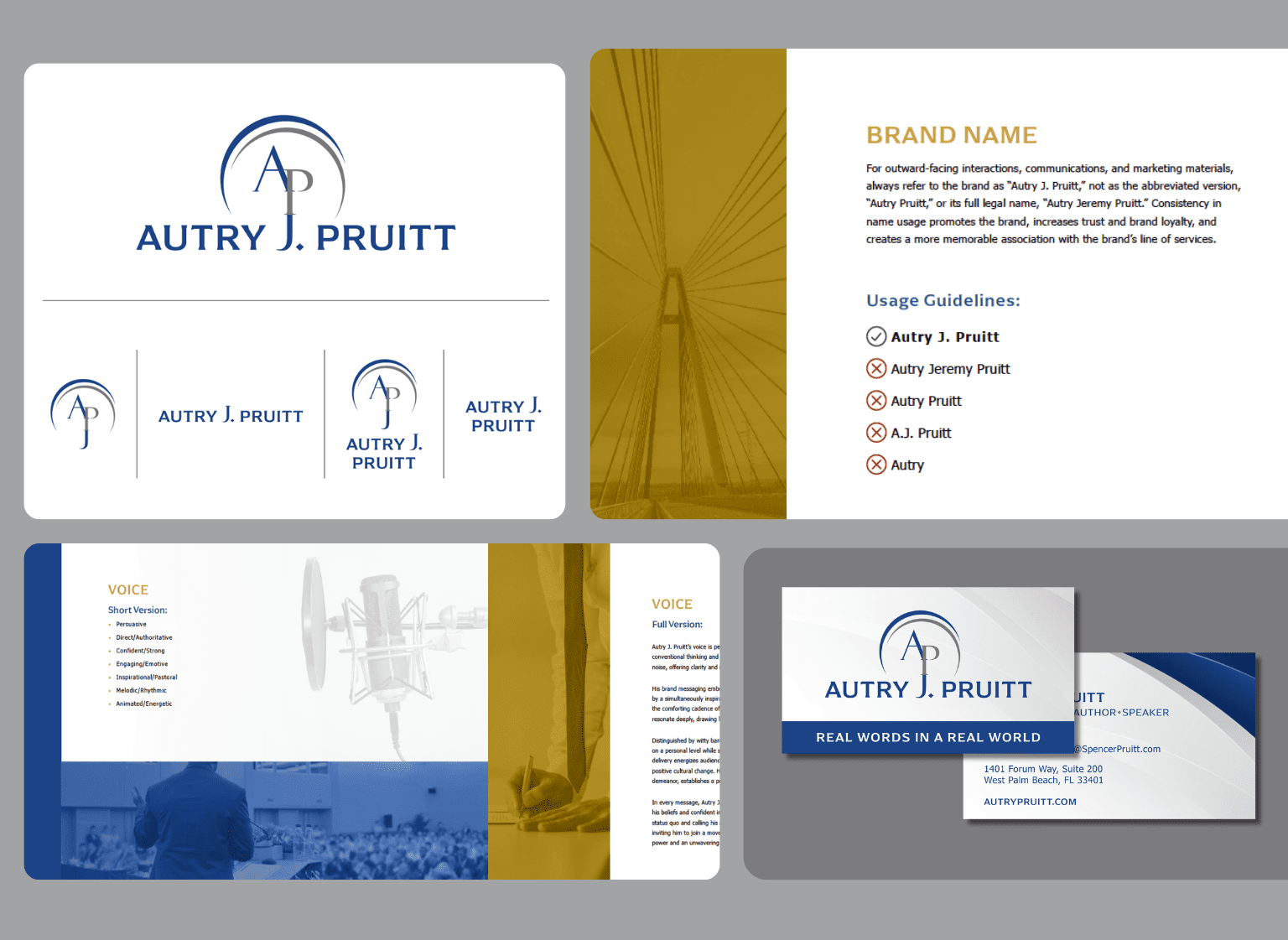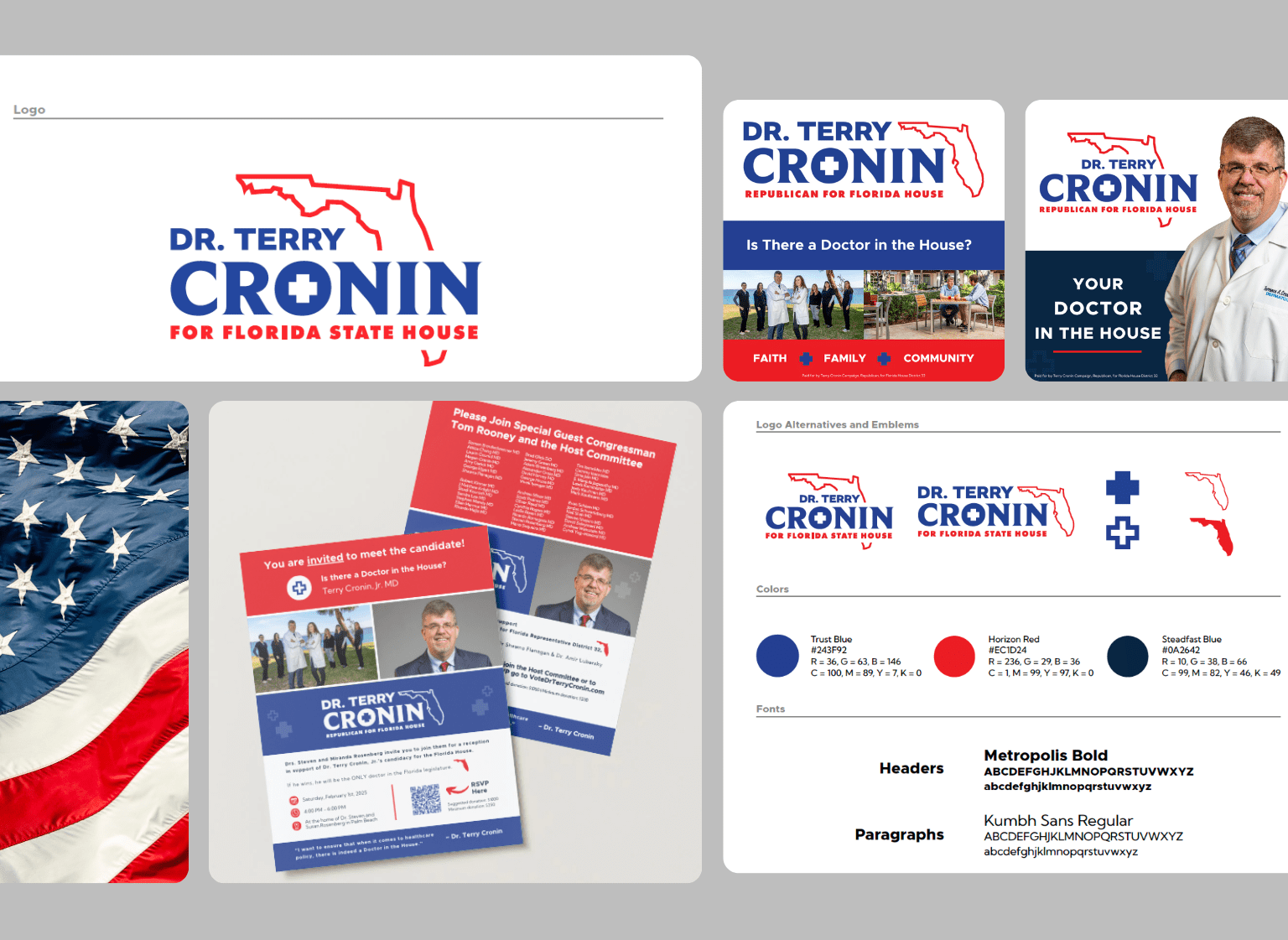Create a Meaningful Presence
In today’s hyper-competitive world, the importance of personal branding cannot be overstated. Your brand is more than just your name; it’s the culmination of your values, goals, and how you want to be perceived by others.
Effectively positioning yourself within your industry is akin to dressing for success: it prepares you for the opportunities that await. In this blog post, we’ll explore the essentials of personal brand identity and how to intentionally shape it to align with your aspirations.

Ask yourself: What is your “why?”
Without self-awareness of your origins and a defined destination, you risk becoming a product of circumstance instead of the creator of your own story.
Getting From Here to There: The Power of Goal Setting
The foundation of an impactful personal brand lies in clearly defined goals. Setting long-term goals acts as your compass, guiding your branding efforts in a purposeful direction.
Your goals vary widely—from career advancements and personal development to industry influence and new business opportunities. By aligning your brand with these objectives, you create a roadmap that dictates how you present yourself and interact with your audience. For example, suppose your goal is to become a thought leader in your field. In that case, your brand should reflect deep expertise and insight, aligning all messaging and visuals with this aspiration.
Establishing and Defining Your Core Values
Your core values are the principles that guide your behavior and decision-making. They are vital for building an authentic personal brand. By defining what truly matters to you—thoughtfulness, innovation, community, faith, or another value—you provide a strong foundation for your branding efforts.
Your core values should resonate with your long-term goals, ensuring that your brand reflects who you are at your core. For example, your brand should showcase creativity and forward-thinking initiatives if you value innovation. Removing mismatches between your values and brand perception will facilitate a more genuine connection with your audience.


What Makes You Uniquely You?
Now that your goals and values are laid out, it’s time to carve out a niche in your industry. What sets you apart from others in your field? This is where differentiation plays a critical role. To effectively differentiate yourself, consider crafting a strong value proposition that outlines what people can expect from you.
An easy exercise to identify your unique offerings is to host a workshop or brainstorming session. List out what makes you distinct and prioritize these differentiators, ensuring they are compelling and relevant to your audience. This could be a specialized service you offer, your unique perspective on industry trends, or exceptional customer service that leaves a lasting impression.
Person to Person: Connecting with Your Audience
Once you’ve established a unique personal brand, it’s crucial to identify and engage with your target audience. Use demographic, psychographic, and behavioral segmentation to understand better who will resonate with your brand. Remember, an effective brand isn’t just built on promotion; it’s about creating meaningful engagement.
Personalized messaging is vital for establishing a connection with your audience. Tailor your communications to be relatable and relevant, ensuring you engage more deeply. Showcasing your authenticity and values will help you build trust and, in turn, a loyal following.

Auditing the Competitive Landscape
To fully understand your place in the market, analyze your competition. Identify both direct and indirect competitors and evaluate their strategies. What are they excelling at, and where are the gaps?
By understanding the competitive landscape, you can effectively underscore what makes you stand out and strategically set yourself apart. Conducting a SWOT analysis (Strengths, Weaknesses, Opportunities, Threats) will help you refine your brand positioning and this level of awareness allows you to make informed branding decisions.
The Continuous Journey of Personal Branding
Finally, it’s essential to recognize that personal branding is continuous. As you grow and evolve, your brand should adapt to reflect changes in your goals, values, and the market landscape. To refine your brand continually, regularly seek feedback, engage with your audience, and stay informed and educated about industry trends, newcomers, and innovations.
Your Personal Brand, Your Personal Narrative
Your personal brand identity reflects who you are and where you aspire to go. By intentionally aligning your branding efforts with your goals and values, you can create a powerful narrative that resonates with your audience. Remember, in today’s world, being authentic and purposeful is key to standing out.
Are you ready to elevate and grow your personal brand?
“Your brand is the story you tell the world.”
Joshua Adams,
Founder of Rock Paper Simple

